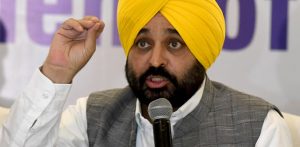“What started as harassment soon turned into a profit-making business."
Archita Phukan became a viral sensation almost overnight: bold reels, a glamorous aesthetic, and even a photo with adult star Kendra Lust.
She looked like just another confident Instagram influencer chasing fame.
But here’s the disturbing twist: she wasn’t real.
Her Babydoll Archi profile was merely a deepfake persona built using artificial intelligence, morphed photos, and a stolen identity.
The case has highlighted India’s growing crisis at the intersection of artificial intelligence, online pornography, and unchecked digital abuse.
What is the Archita Phukan Case?

The Instagram profile ‘Babydoll Archi’ first appeared in August 2020. It showed a young, confident woman posting trendy dance reels, selfies, and bold content.
Her follower count grew, aided by social media’s obsession with transformation videos and “baddie” aesthetics.
It skyrocketed when Archita lip-synced in a reel set to ‘Dame Un Grrr’.
The account now has over 1.4 million followers and is verified.
Things escalated when Archita posted a photo alongside US adult film star Kendra Lust.
Rumours erupted across India that an Assamese woman had joined the American porn industry. Meme pages in Assam had a field day. The intrigue only grew. Was she India’s next viral adult star?
But the truth was far darker.
The entire persona had been fabricated using AI by the real Archita Phukan’s ex-boyfriend Pratim Bora, a mechanical engineer from Tinsukia, Assam.
Using a single image of her, Bora created a deepfake identity as part of a sinister revenge plot.
He used tools like OpenAI, Midjourney and other AI software to generate lifelike, seductive content. He altered photos, lip-synced songs, edited travel reels, and even added synthetic pornographic material, all without the victim’s knowledge or consent.
Sizal Agarwal, IPS, SSP in-charge of Dibrugarh, said:
“What started as harassment soon turned into a profit-making business.”
The account, which changed names from Babydoll Archi to Amira Ishtara, quickly became monetised.
Bora reportedly earned over Rs. 10 Lakh (£8,600) through a subscription platform called ActualFans, where AI-generated adult content of ‘Babydoll Archi’ was hosted.
Agarwal added: “We traced the Instagram account’s number and linked it to Pratim’s name. When we asked the family if they knew who he was, they told us he was a past acquaintance of the victim.
“He started it to harass her, but as soon as he started earning money, he became greedy and continued the account.”
Bora was arrested after the victim eventually discovered the account and a complaint was filed.
Police seized SIM cards, a laptop, a tablet and other digital devices. Investigations suggest Bora had used multiple fake Gmail IDs and social media accounts to spread the content and conceal his identity.
But even more disturbing was how believable the deception had become.
Comments from Kendra Lust on Archita’s posts, likely morphed, further fuelled the illusion.
The internet, fast to react but slow to verify, accepted it without question. And the woman at the centre of it all was left to pick up the pieces of a life she didn’t choose to live.
India’s Porn Problem

The Archita Phukan case is deeply entangled with another issue India has yet to properly confront: the surge of pornography and its cultural taboo.
While pornography itself is not explicitly illegal to consume in India, its production, distribution, and transmission are regulated, often inconsistently.
Yet content, both real and fake, floods the digital space.
From leaked sextapes and private videos to AI-generated material, it spreads unchecked on apps, forums, and social platforms.
India ranks among the top consumers of porn globally. And yet, sex remains a taboo subject.
Psychologist Shreya Kaul said: “It’s taboo, it’s frowned upon, it’s called obscene.
“There’s a clash of ideologies, as though one’s sexual activity and sex life are directly tied to their morality, culture, and standing in society.”
This cultural silence has left a vacuum.
In the absence of comprehensive sex education, many young people turn to porn as their primary source of information. But what they consume is far from reality.
Pornography is scripted, stylised, and commodified. It teaches nothing about consent, intimacy or emotional connection.
Kaul added: “Whether they condone it or consume it as rebellion, gratification, or curiosity, most will still watch it, even those who publicly denounce it.”
In the Archita Phukan case, the reaction online was swift and brazen.
Her Instagram comment sections were filled with requests for more “explicit content”, porn links, and degrading remarks.
Sexuality in India, especially women’s sexuality, is still controlled through shame.
When someone, even a deepfake, breaks that mould, society is quick to punish, mock or fantasise.
The fake persona became a fantasy playground and the real woman bore the trauma.
Deepfakes: A Digital Threat to Identity

What makes deepfakes particularly dangerous is their believability.
Unlike obvious photo edits or crude Photoshop jobs, AI-generated content can now mimic gestures, voices, facial expressions, even eye movement, with alarming accuracy.
This has seen many Bollywood celebrities fall victim.
Faisal Kawoosa, of Techarc, explained: “Deepfake and AI in general is getting sophisticated every day.
“We all as digital users have to become extremely careful of how we are sharing our information like pics and videos, even in personal circles.”
What once required a team of skilled graphic designers can now be done by a teenager with a smartphone and internet access. That’s how accessible and advanced these tools have become.
For women, particularly those with any social media presence, the risk is compounded.
A casual selfie can be lifted, morphed, and repurposed into pornographic material within minutes. And once it’s online, the damage is irreversible.
Kawoosa added: “An interview of a celebrity on YouTube can be exploited to create a deepfake. That’s where we need to have better systems in place.”
The implications go beyond reputation. Victims suffer real-world consequences, from harassment and cyberbullying to mental health issues and social isolation. And in many cases, there is no legal recourse.
India’s Cyber Laws

India’s existing cyber laws, drafted over two decades ago, were never designed to deal with the scale and sophistication of today’s digital abuses.
While sections of the IT Act address cyber defamation and obscene content, they are ill-equipped to tackle deepfakes or AI-generated pornography.
Experts argue that platform accountability is key.
Social media companies often escape liability by claiming they are merely intermediaries. But the Archita Phukan case shows that platforms play a central role in amplification.
Kawoosa said: “First of all, we need to bring all platforms under the purview of accountability and close the loophole that allows them to escape responsibility.”
Prabhu Ram, VP at CMR’s Industry Research Group, believes India needs urgent legislative reform:
“The Archita Phukan deepfake case is a stark reminder of how chillingly AI can be weaponised.
“To effectively combat the rising threat of deepfakes, there is a need to enact clear laws to criminalise malicious use, mandate transparent labelling of AI-generated content, and hold platforms accountable for detection and removal.”
Ram further called for victim protection mechanisms, investment in deepfake detection tools, and international cooperation to tackle the global nature of such threats.
The Gap between Silence & Shame

The Archita Phukan case is a warning shot. It tells us that anyone, whether it be your sister, your partner or your friend, can be a victim of digital exploitation. All it takes is a few clicks.
The internet is no longer a safe space for expression. It is increasingly a space of exploitation, and society, law enforcement, and the government are still playing catch-up.
Agarwal said: “This case has brought to light a very important fact.
“We need to apply our brain when we see content online and make sure whether the information is true and verified or not.”
Until India updates its laws, educates young people, and holds platforms accountable, the burden will continue to fall on individuals, mostly women, to protect themselves in a digital world rigged against them.
The story of Archita Phukan is not just another deepfake controversy; it’s a human rights issue in the digital age.
It reveals how personal vengeance, combined with powerful technology and social voyeurism, can ruin lives.
What happened to her could happen to anyone.
AI has democratised content creation, but also content distortion. And the line between fantasy and reality has never been thinner.
If India wants to protect its citizens, it must act now.
Reform laws. Educate users. Demand transparency. And most importantly, listen to victims, not just when they go viral, but before the damage becomes irreparable.
Because in the age of illusions, truth is no longer obvious. It must be fought for.






























































